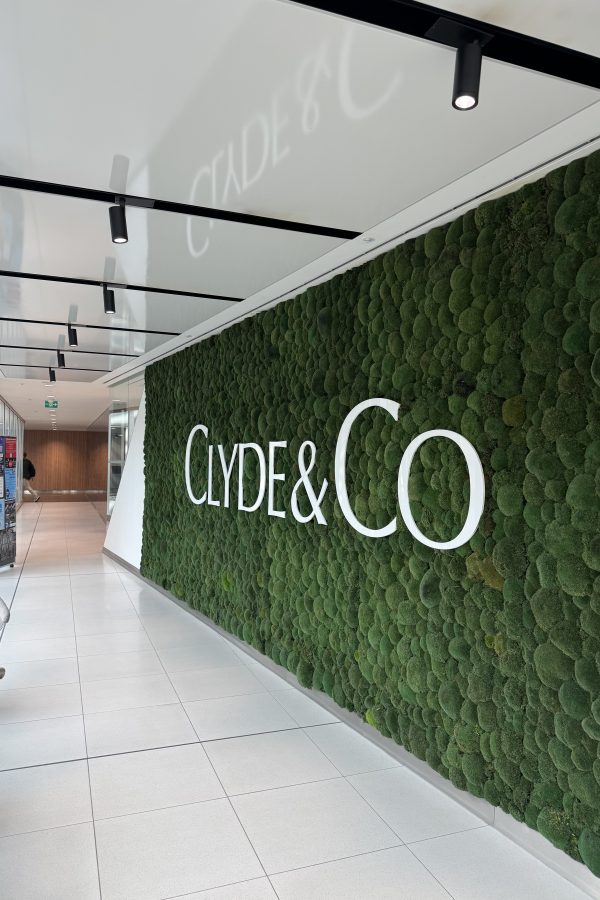In June, Ashurst was recognised by People in Law with a Best Social Mobility Initiative award. It achieved this by committing itself to removing traditional access barriers to the law sector and by supporting students and seeking to make its recruitment and retention processes open and accessible to all.
The firm reviewed how it recruited talent and analysed data and qualitative input from the lived experience of people to gain insights about its selection methods. This resulted in a variety of initiatives that have led to improvements in candidate quality and in attracting people from a broader range of backgrounds, with a high rate of applications from people from ethnic minority backgrounds. More than half the graduate cohort is from state schools.
Lloyd Stephenson, head of resourcing at Ashurst, says the challenge was to find a recruitment approach that was a better predictor of future performance in-role and increase tenure at the firm. Removing systemic bias in the firm’s approach was the best way to identify high performing talent with the greatest impact on the business, he added. Here, he answers questions from Adam McCulloch about the firm’s approach.
To achieve fairer and more inclusive recruitment, to what extent has Ashurst devised its own methods in altering its recruitment processes?
On the early careers side:
- Utilising the firm’s flagship Social Mobility programme, Access Ashurst, as an alternative recruitment channel to identify and nurture talent
- Changing the firm’s recruitment criteria using gamified assessments that use emotional intelligence and problem solving tests as a better predictor than examination results to identify future talent, which naturally identifies a more diverse pipeline of talent
- Launching an Open Access Virtual Internship programme to provide invaluable professional experience in an easily accessible way
- Providing ongoing support, coaching and reverse mentoring to candidates who did not have the privilege of a professional social network themselves through our partnerships
- Identifying sponsorship opportunities in order to target non-Russell Group universities
- Attending virtual law fairs to widen outreach and participation
- Launching a school leavers’ apprenticeship scheme to offer an alternative way to qualify into law for students who have the capability but not the financial means
We also work with a number of organisations to gain access to broader talent pools:
- We use Rare Recruitment’s Contextual Recruitment tool to flag high performing candidates and use Rare’s marketing database to include candidates interested in a legal career
- We work with City Solicitor Horizons, Rare Recruitment, Bright Network and the Bright Network Virtual Internship (access to 14,000 students interested in law) to provide a mixture of career insight events, work experience and mentoring opportunities to talent from under-represented groups
- We market ourselves at the Legal Cheek and All About Law Virtual events to target a wide group of universities
- For lateral recruitment we are working with our agencies to find ways in which to have balance to our shortlists and to showcase our inclusive culture
The firm sounds as if it was always tuned into fair recruitment at some level but how much persuasion was needed? Were there cultural obstacles to overcome within the firm?
I had support from the leadership team, key partners in our business and the Social Impact team from the start to make significant changes; however, in order for these to be embraced and adopted widely we piloted the methods and used our own data and experience as a case study to roll out. Our new methods found better candidates in addition to drawing them from a wider pool of talent. Our clients have also taken notice of what we have been doing over the years and commended our partners on the work we do. This has given us the confidence to be bold and progressive, therefore very little persuasion was needed.
What do school qualifications tell us about who might be a good fit for a legal firm and how much weight does Ashurst put on them?
Academic results are one way of measuring intelligence but they are not the best predictor of performance in-role as a lawyer. Therefore we no longer rely on A-Level results in our screening and use our online assessments in combination with a number of other predictive methods to identify high potential talent.
How have universities responded to the growing recognition that the old hierarchical and elitist ‘structure’ does not meet the needs of modern business?
I am not sure that I agree that old hierarchies and elitist structures still exist in that way as universities, clients and competitors are focused on identifying and supporting students and that means widening participation across a diverse pool of talent. I do think we have progressed further than some firms, although most of our competitors are finding their own way to ensure their firms have a diverse talent pipeline.
What more can Ashurst do to recruit outstanding candidates from backgrounds that traditionally might have been passed over?
There is always more that can be done as you appreciate the complexity of the situation and pilot new approaches. Increasingly, our clients are grappling with the same issues, and collaboration with clients can be a huge force for positive change. In addition we are launching business skills e-learning modules on our careers site so that candidates can self-educate and build skills in preparation for assessments and the world of work, whether at Ashurst or otherwise.
Does the government’s antipathy towards Black Lives Matters hinder the development of inclusive approaches to recruitment?
These debates highlight how complex issues surrounding social capital, race, gender, sexuality, wellbeing are for any organisation. There are no easy answers and we have learned by focusing on inclusive and progressive practices to find talent and in taking each step we gained confidence and insights that prepare us to go further
How influential has Ashurst been on other firms, clients and competitors?
I don’t know how much of an impact we have had on our competitors but we are delighted to have been recognised by the market for our work in early careers and recruitment, recently winning the 2020 Social Mobility Award for Recruitment Programme of the Year, People in Law Awards 2021 for our work in Social Mobility and the Apprentice programme and the FT Innovation Awards for our Pathway Career Programme – something which has definitely caught the attention of our clients and competitors.
It is also great to see more Magic Circle firms set up apprentice schemes, some four years after we did, and so I like to think our success has given others the confidence to provide these non-traditional entry points into the profession. Our client collaborations are pretty unique and again support the wider aim of ensuring the profession is open and accessible.
Does Ashurst ‘big up’ its recruitment achievements sufficiently? Do clients want to hear about it?
Probably not as much as we could, having quietly piloted and tested a number of new ways of working over the past five years it was only in 2019-20 that we started to realise it was a point of difference. Since sharing these insights with others we realised that our thinking and practice was more progressive than others and it was great to win a number of accolades and awards.
We now collaborate and engage clients directly on our journey and they are really enthused by the work and so we are getting better at telling people about what we do and how we do it. We recently participated in a government project to open up the legal profession as part of the Levelling Up agenda and it was great to see so much good work going on across our sector by other law firms.
Are you satisfied when you look around the company that you are hearing and seeing people that reflect who we are as a country?
Representation takes time to take effect across all levels and areas of the firm. As the progress of female representation in law demonstrates, it needs ongoing commitment to drive meaningful change. Getting other forms of representation will also take time, but the industry seems committed to this and that gives me confidence about the future.
How does Ashurst interact with recruitment agencies? What demands does it make on them given its fair recruitment policies?
As mentioned earlier, in April 2021 we launched a Diversity and Inclusion Recruitment Agency Commitment to address obstacles in recruiting experienced legal talent by promoting equal opportunities for all, regardless of background. By signing up to the Commitment, recruitment agencies commit to a number of measures including:
- Ensuring that shortlists and/or speculative introductions represent a diverse candidate pool;
- Annually undertaking analysis of quantitative data of the diversity of candidates in order to provide an overview of the market; and
- Encouraging open and honest communication, both in terms of feedback and in regards to any adjustments needed to support candidates to ensure each individual’s needs are being met and to promote equal access and opportunities for all.
Furthermore, as signatories, the agencies also agree to present the diversity breakdown of their own teams as part of their commitment to building a diverse workforce.
We have asked our key recruitment partners to work with us to track the data and identify ways in which we market ourselves, how different groups respond to our recruitment practices and brand, what should we reflect on and where the market does not support a balanced shortlist, what else can be done to ensure high potential talent is not overlooked.










